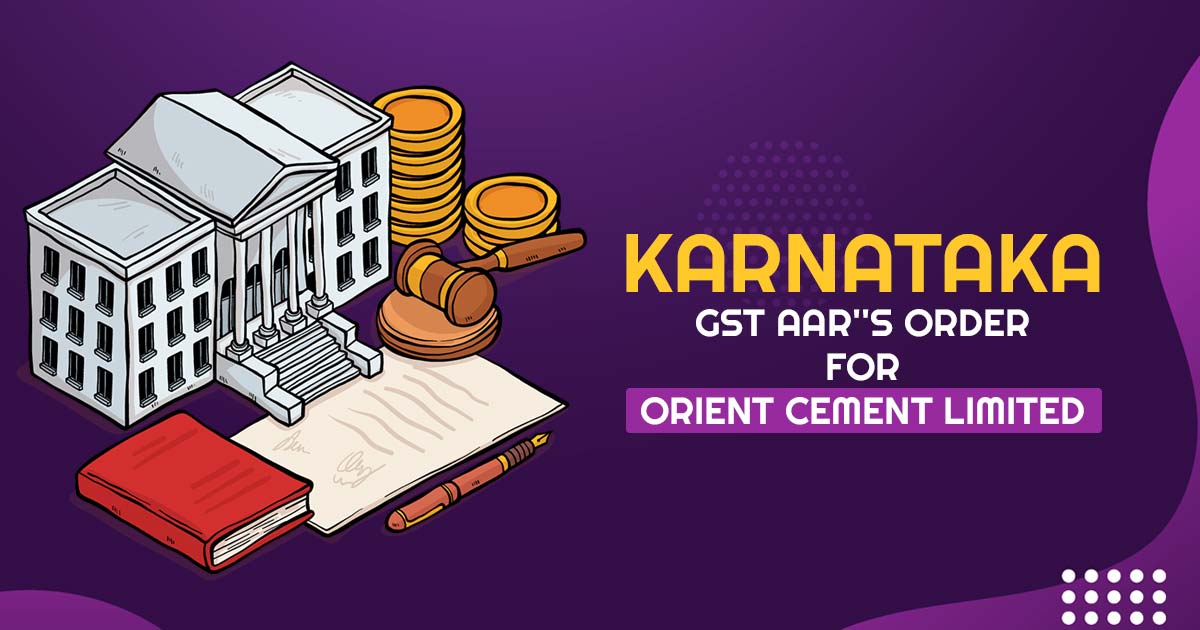
Businesses providing incentives to their dealers, in the form of gold coins, could face tax consequences under the goods and services tax (GST) on the grounds of a decision by the Karnataka Authority for Advance Ruling (AAR).
In the Orient Cement case, the AAR noted that these incentives given by companies to dealers should be considered as a “supply” under GST regulations and be subject to tax.
Tax experts said that this ruling contradicts a previous judgment by the court in a similar case. Given the prevalence of such incentive schemes in various companies, they believe that clarification from the GST Council would alleviate industry concerns.
The case was about two special dealer schemes by Orient Cement, where dealers receive gold coins as rewards based on their cement purchases within a specific timeframe. The central issue in this case was whether the distribution of gold coins should be considered a ‘permanent transfer’ of assets. According to GST rules, any permanent transfer or disposal of business assets, with a claimed input tax credit, is regarded as a supply of goods under GST.
Orient Cement contended that its scheme should not be classified as a supply of goods because gold coins are not considered company assets, instead, they are categorized under expenses according to accounting standards and are not capitalized in the company’s books.
Furthermore, the company asserted that it did not receive any consideration for these coins, they were given as rewards after achieving a specific target by the dealers.
Read Also: Gold GST Rate: Impact on Consumer Before and After
Tax experts noted that this ruling clarifies that the distribution of promotional materials should be regarded as a supply, even when provided without any consideration, mentioned under Schedule 1 (permanent transfer or disposal of business assets) when the input tax credit is claimed on those assets.
This decision conflicts with prior judgments, and the industry is eagerly awaiting further clarification from the GST Council, added the tax expert.
On the other hand, the revenue department argued that the gold coins were indeed permanently transferred to the dealers, and input tax credit (ITC) was being claimed. They also asserted that the GST Act doesn’t require the transfer of assets to be reflected in a company’s balance sheet to be categorized under a supply.
The applicant’s obligation to provide gold coins and white goods to dealers or customers when they achieved certain purchase targets during the scheme period would be seen as a “permanent transfer or disposal of business assets with availed ITC,” subjecting it to GST under SI.NO. 1 of the Schedule I to the Central Goods and Services Tax Act, 2017, as per AAR’s ruling on 24 August.
Important: Karnataka AAR: 12% GST Applies on Living in PG or Hostel
The case also pointed out whether these gold coin transfers should be categorized as gifts, which do not qualify for input tax credit. Orient Cement argued that these were promotional goods provided to dealers only if certain conditions, like the quantity of cement purchased, were met. The AAR agreed with the company’s intention and allowed input tax credits.
| Case Title | M/S. Orient Cement Limited |
| Citation | KAR ADRG 27/2023 |
| GSTIN | 29AABCO5420A1ZX |
| Date | 24.08.2023 |
| For Petitioner | Dr. M.P. Ravi Prasad, Sri Kiran Reddy |
| For Respondents | Sri T.R. Venkateswaran |
| Karnataka AAR | Read Order |









